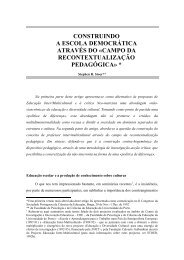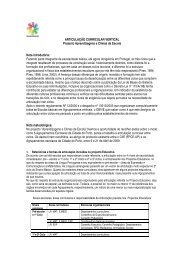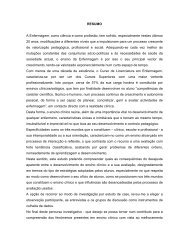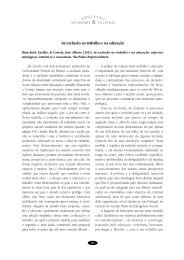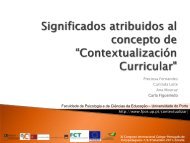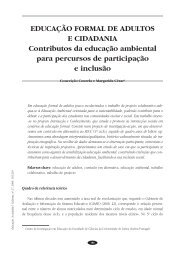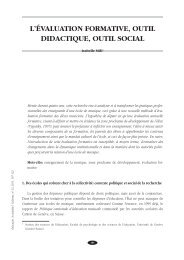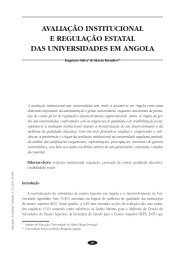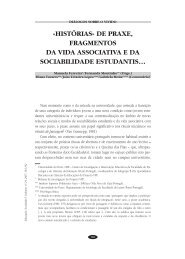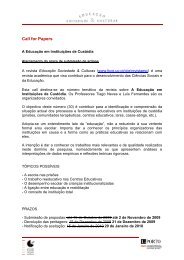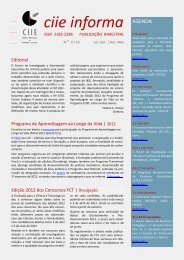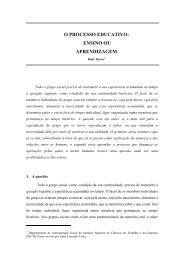REFLECTINGON AN ACADEMIC PRACTICE TOBOOST GENDER ...
REFLECTINGON AN ACADEMIC PRACTICE TOBOOST GENDER ...
REFLECTINGON AN ACADEMIC PRACTICE TOBOOST GENDER ...
Create successful ePaper yourself
Turn your PDF publications into a flip-book with our unique Google optimized e-Paper software.
that a real politic willingness to offer structural opportunities is indispensable to make a differencein preparing future educators for the task of assuming a feminist sensibility in theirprofession (for a revision of gender education policies in Spanish State, see, for example, Ballarín,2004). A law that does not take into account the needs and potentials of academia, students,and professors, that does not offer any facilities, that does not establish any mechanismof evaluation of its implementation is definitely insufficient. To be properly implemented, professorswith gender formation should be contracted 12 ; already employed professors should beadequately trained; gender courses should be designed and gender mainstreaming implementedin all degrees in order to prepare future professors; a concrete academic space andtime should be devoted to work gender topics in Educational degrees; etc.Unfortunately, as denounced by Verloo and Lombardo (2007), power relations still definewho have voice in the design of gender policies and both technocracy and femocracy 13 tendto depoliticize them. For instance, we think it is important to try to develop gender stereotypesubverting practices in the present context while pressing for more political attention tothat reality. We hope our account may stimulate the inclusion of similar experiences ineducation and the recognition of the need for further critical research, evaluation, debates andresult sharing.Contact: Universitat Rovira i Virgili, Departament de Pedagogia, Carretera de Valls s/n, 43007, Tarragona,Catalunya – Spain / Universitat de Barcelona, Departament de Mètodes d’Investigació i Diagnòstic en Educació, Pg.Vall d’Hebrón, 171, Edifici Llevant 2 a planta, 08035, Barcelona, Catalunya – SpainE-mail: barbara.biglia@urv.cat; avelasco@ub.edu11 Personal comments during the first presentation of the paper, Oporto (June, 2011).12 Actually very few university professors have themselves received any specific formation on gender (in Spaindoes not exist any specific Gender Study Department and there are very few and quite new PhD courses).Moreover, academics that explicitly engage with feminist practices may face important difficulties to stabilizetheir career position.13 «A “femocrata” is a feminist bureaucrat. The term is an Australian coinage minted when members of the Australianwomen's movement first developed the strategy of entering federal and state bureaucracies as a way ofbringing feminist concerns into the public policy agenda. (…) The institutionalization of the femocracy hasmeant that there is a new generation of femocratas, some of them generated from the ranks of the bureaucracy,who lacks a background in feminism activism» (Eisenstein, 1995: 69-80).123



